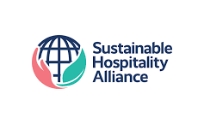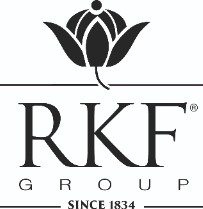
SUSTAINABLE HOSPITALITY ALLIANCE PARTNERS WITH WORLD RESOURCES INSTITUTE TO SUPPORT THE HOSPITALITY INDUSTRY TACKLE CLIMATE CHANGE THROUGH FOOD
The aim to reduce food waste and offer more low carbon foods in the hospitality industry is set to be a key focus for the Sustainable Hospitality Alliance’s partnership with World Resources Institute (WRI). |
 |
SUSTAINABLE HOSPITALITY ALLIANCE PARTNERS WITH WORLD RESOURCES INSTITUTE TO SUPPORT THE HOSPITALITY INDUSTRY TACKLE CLIMATE CHANGE THROUGH FOOD
The aim to reduce food waste and offer more low carbon foods in the hospitality industry is set to be a key focus for the Sustainable Hospitality Alliance’s partnership with World Resources Institute (WRI). |
Catégorie : Monde - Économie du secteur
- Développement durable
Ceci est un communiqué de presse sélectionné par notre comité éditorial et mis en ligne gratuitement le 30-05-2023
The Alliance and WRI have a shared commitment to helping the hospitality industry reduce its food-related emissions by 25% by 2030.
By shifting to low carbon foods and reducing food waste the industry can maximize its action on climate change and meet its targets for addressing the climate crisis.
The partnership aims to engage employees and customers by bringing the latest science to the industry and provide networking opportunities to share lessons in reducing food-related emissions.
As part of this activity, WRI attended and supported the Alliance’s annual summit earlier this month
The partnership will include WRI helping to formally verify the Alliance’s renowned Hotel Carbon Measurement Initiative (HCMI) aligns with the GHG protocol.
The HCMI has recently been updated by the Alliance and they look forward to it being peer reviewed.
Those committed to the Coolfood Pledge receive individualized data analysis in an annual GHG emissions report in order to track progress in reducing GHG emissions.
The aim is to provide an understanding to the industry as to what works with consumers to shift more diners toward plant-based foods.
Alliance members will be urged to join the Friends of Champions 12.3 network, which helps organisations use a “target-measure-act” approach to halve food loss and waste by 2030.
This target aligns with the UN Sustainable Development Goal Target 12.3. ‘Friends of Champions 12.3’ is part of the Champions 12.3 network, of which WRI serves as secretariat.
World-class research and cutting edge resources will also be available to members of the Alliance who are on the journey towards Net Positive Hospitality.
Sustainable Hospitality Alliance CEO, Glenn Mandziuk, said: “We are delighted to be partnering with World Resources Institute (WRI) to move the hospitality industry towards food sustainability. Combining the Alliance’s resources and knowledge with WRI’s expertise and platforms, this partnership can help accelerate our members towards reducing food waste and food-related emissions. We look forward to our Hotel Carbon Measurement Initiative (HCMI) being peer reviewed by WRI, which will serve as an important step to ensuring a transparent and globally comparable approach to carbon, water and waste reporting.”
“Reducing food waste is a triple win for the hospitality industry – it helps meet important sustainability targets, engages customers, and can save significant money. Research has shown that hotels have saved $7 for every $1 invested in fighting food waste,” said Liz Goodwin, Senior Fellow and Director, Food Loss and Waste at WRI.
“By joining Friends of Champions 12.3, SHA is connecting its members to a network of businesses and others who are leading the fight to halve food loss and waste by 2030.”
“This partnership sets the hospitality industry up to significantly reduce the climate footprint of the food it serves,” said Jenny Arthur, Head of Membership Development for Coolfood at WRI. “Through Coolfood, companies will have access to cutting edge behavioural science on how to sell low carbon food, as well as rigorous data and support to help them reduce emissions. We’re excited to welcome them to the movement for delicious climate action.”
Key Statistics on food and sustainability:
- The production of food including agriculture and related land-use change (e.g., deforestation) accounts for nearly a quarter of global greenhouse gas (GHG) emissions. Shifting diets is essential to hit the global climate targets.
- As the world population approaches 10 billion by 2050, emissions from agriculture and land could grow to take up the majority of the “carbon budget” for limiting global warming to acceptable levels.
- Beef requires 20 times more land and emits 20 times more GHG emissions per gram of edible protein than common plant proteins, such as beans. Helping more people shift away from meat-centered and toward more plant-forward diets can have tremendous climate and other environmental benefits.
- More than one billion tonnes, or one third of all food produced, is lost or wasted each year.
- Approximately 17% of food is wasted at the retail and consumer levels.
- Current levels of food loss and waste are responsible for wasting a quarter of all the fresh water used in agriculture, wasting nearly a quarter of all the fertilizer that is used, using an amount of land greater than the area of China, which could have otherwise been used for food that was consumed, driving 8-10% of global greenhouse gas emissions, costing the global economy more than $1 trillion every year.
About the Sustainable Hospitality Alliance
The Sustainable Hospitality Alliance brings together the hospitality industry and strategic partners to address key challenges affecting the planet and its people, local destinations and communities. They develop practical free resources and programmes to create a prosperous and responsible hospitality sector that gives back more than it takes. Their members represent over 50,000 hotels – totalling 7 million rooms – and include world-leading companies including Choice Hotels International, Marriott International, Hilton Hotels & Resorts, IHG Hotels & Resorts, Hyatt Hotels Corporation, BWH Hotel Group and Radisson Hotel Group, as well as regional brands. Their network also includes other parts of the hospitality value chain, including owners, investors and suppliers, to further drive joined up action on sustainability, and accelerate the industry on the path to net positive hospitality.
About World Resources Institute
World Resources Institute (WRI) is a global research organization with offices in Brazil, China, Colombia, India, Indonesia, Mexico and the United States, and regional offices for Africa and Europe. Our over 1,700 staff work with partners to develop practical solutions that improve people’s lives and ensure nature can thrive.
Cool Food is a ground-breaking initiative from World Resources Institute that helps major food providers use cutting-edge environmental and behavioural science to scale healthy, climate-friendly meals that benefit people and the planet. Its members span food service companies, hotels, restaurants, hospitals, cities, and universities predominantly across Europe and North America, but also with locations in Latin America, Asia, and Australia. Coolfood works with organizations that serve 8 billion meals every year.
|
|





